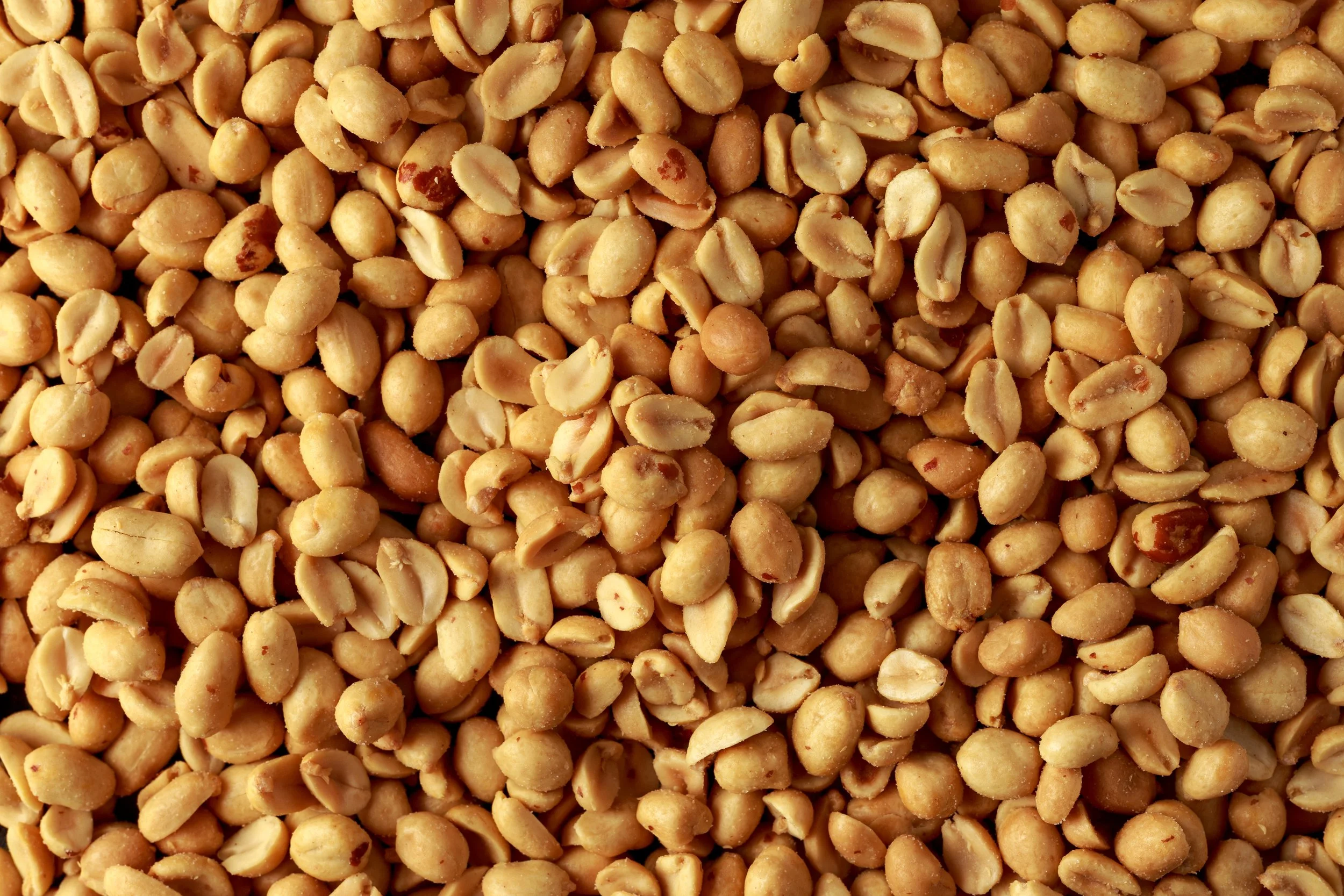
The Health Benefits of Peanuts
Personal Health and Nutrition of Peanuts
Peanuts have more protein than any other nut and with levels per serving that actually surpass other types of beans and as well as nuts. This makes peanuts perhaps the single best source of plant-based protein on earth.
Peanuts are actually a legume (member of the bean family) but for diet purposes are classified as a nut (ground nut). Peanuts contain all 20 essential amino acids in variable proportions and is the greatest source of the amino acid arginine. Peanuts are also high in fiber, and loaded with heart healthy fats while having no cholesterol or trans-fat. Peanuts are packed with many essential vitamins and minerals which include Vitamin E, Folate, Niacin, Vitamin B6, riboflavin, zinc, copper, selenium, magnesium, manganese, potassium, calcium, and iron. (Balasubramanian, et al, 2020, Arya et al, 2015).
Regular consumption of peanuts is associated with lower risk of obesity and weight gain.
Further, regular consumption of peanuts is associated with reduced visceral fat which is the deep fat deposits around our intestines and causes the greatest health risks, (Liu, et al 2019, Gamboa-Gomez 2015, Ros, 2010, Bes-Rastrollo, et al, 2009)
Regular peanut consumption appears to lowers cholesterol and serum triglycerides and promote heart healthy lipids in the blood.
Frequent peanut consumption appears to decrease the risk of gall bladder disease and the risk of needing your gall bladder removed.
Adding peanut extract to the diet laboratory animals’ diets improves memory and brain function as well as reducing diabetes symptoms.
Peanuts are highly digestible by humans.
The PDCAAS or the percent digestibility of the proteins in peanuts are 0.7 out of 1.0 (70%); this compares favorably to other plant-based proteins such as whole wheat which is 0.46, which makes peanuts one of the most easily digested forms of plant-based protein (Arya, et al, 2015).
People who consume peanuts regularly are less likely to die of cancer, heart disease, stroke, and respiratory disease.
Multiple studies show that consumption of peanuts reduces total mortality as well as cause-specific mortality. What has been shown is that adults who eat peanuts every day if followed for 5 years are 20% less likely to die of any cause vs people who do not eat either peanuts or tree nuts. In addition, many cause-specific mortality studies show that the heart protective benefits for heart disease and sudden cardiac death were independent of gender, age, body mass index, alcohol use, or the presence of any pre-existing cardiovascular risks. In short, eating peanuts on a regular basis appears to prolong your life. (Albert et al, 2002, Ros, 2010, Bao, et al 2013, van den Brandt, et al 2015, Luu et al, 2015).
Regular peanut consumption appears to help reduce blood pressure
Regular peanut consumption may reduce the risk of colorectal cancer in all genders but specifically in women
Regular peanut consumption is associated with a reduced risk of type 2 diabetes mellitus,

Peanuts are the Foundation of a Sustainable Diet
Dr Adam Drenowski of the University of Washington defined a sustainable diet as “those diets with low environmental impact which contribute to food and nutritional security and to a healthy life”. Peanuts are a foundation of any sustainable diet.
Dr Adam Drenowski of the University of Washington defined a sustainable diet as “those diets with low environmental impact which contribute to food and nutritional security and to a healthy life”. Peanuts are a foundation of any sustainable diet.
Peanuts are a very low carbon impact food
Peanuts require far less water to grow than any tree nut. Almonds and walnuts require 15 times the amount of water to produce equivalent one-ounce servings as peanuts.
Peanut plants have the unique ability to improve the soil.
Peanuts are nitrogen fixing which means they take nitrogen from the air and make it available in the soil for the peanut plants and other future crops. This was first popularized by Dr George Washington Carver over 150 years ago to heal cotton depleted damaged soil in the south. This means peanut cultivation requires less fertilizer than other crops and improves the soil in crop rotations. (From American Peanut Council)
LET’S DO SOME MATH
Georgia Crop Improvement Association estimates average yields of 4,400 pounds of peanuts per acre with some southern peanut growers growing over 6000 pounds per acre! Peanuts have approximately 165 grams of protein per pound. Using yields of 4000 lb./acre that calculates into 660,000 grams of high quality easily digestible protein per acre. This is comparable and even exceeds soy bean protein yields.
This puts peanuts as one of the best most efficient plant-based proteins known. Other than soy beans no other nut or legume comes close. In short when you eat peanuts you are saving the earth.
Peanuts have the smallest carbon footprint of any nut.